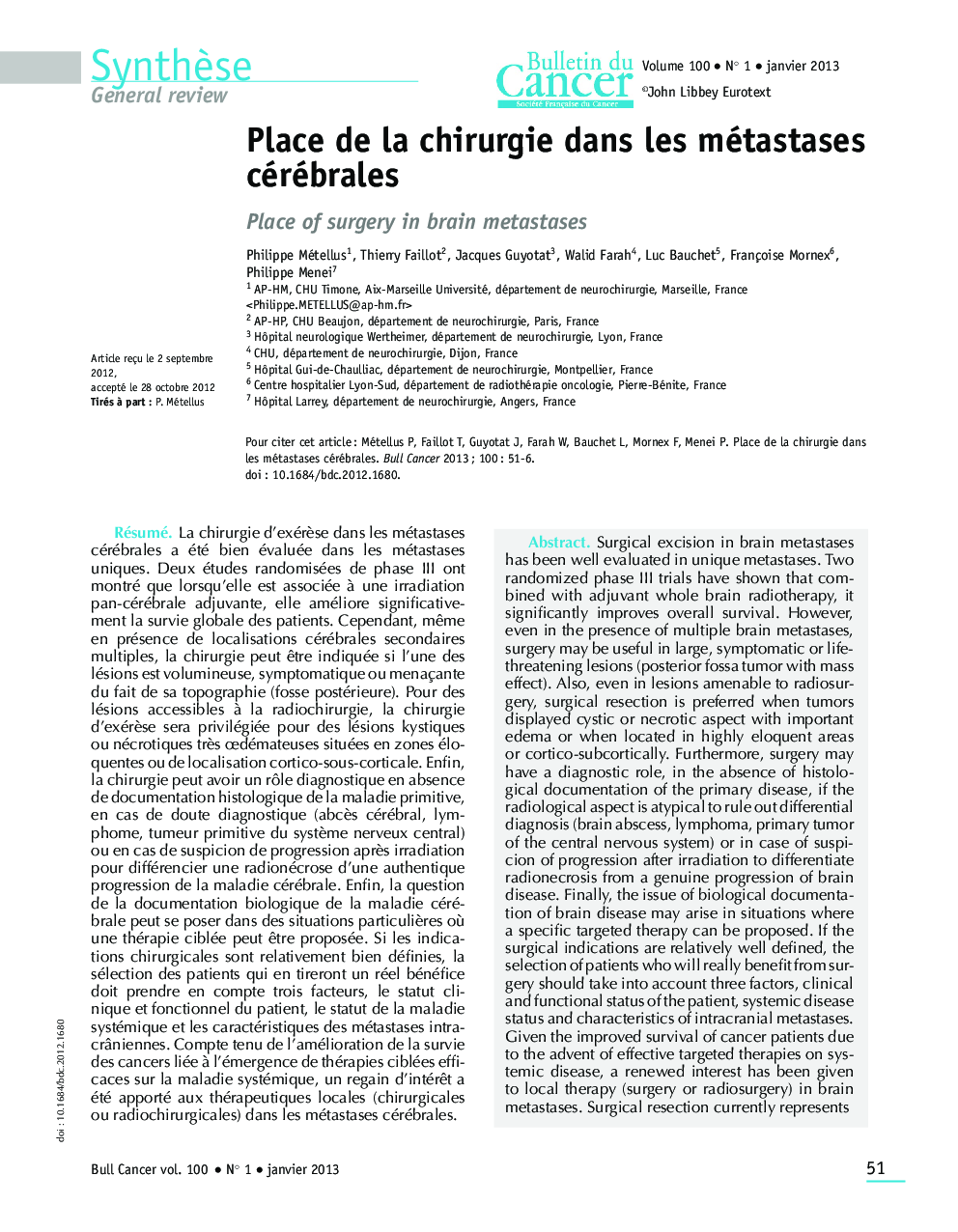| Article ID | Journal | Published Year | Pages | File Type |
|---|---|---|---|---|
| 3978722 | Bulletin du Cancer | 2013 | 6 Pages |
Abstract
Surgical excision in brain metastases has been well evaluated in unique metastases. Two randomized phase III trials have shown that combined with adjuvant whole brain radiotherapy, it significantly improves overall survival. However, even in the presence of multiple brain metastases, surgery may be useful in large, symptomatic or life-threatening lesions (posterior fossa tumor with mass effect). Also, even in lesions amenable to radiosurgery, surgical resection is preferred when tumors displayed cystic or necrotic aspect with important edema or when located in highly eloquent areas or cortico-subcortically. Furthermore, surgery may have a diagnostic role, in the absence of histological documentation of the primary disease, if the radiological aspect is atypical to rule out differential diagnosis (brain abscess, lymphoma, primary tumor of the central nervous system) or in case of suspicion of progression after irradiation to differentiate radionecrosis from a genuine progression of brain disease. Finally, the issue of biological documentation of brain disease may arise in situations where a specific targeted therapy can be proposed. If the surgical indications are relatively well defined, the selection of patients who will really benefit from surgery should take into account three factors, clinical and functional status of the patient, systemic disease status and characteristics of intracranial metastases. Given the improved survival of cancer patients due to the advent of effective targeted therapies on systemic disease, a renewed interest has been given to local therapy (surgery or radiosurgery) in brain metastases. Surgical resection currently represents a valuable tool in the armamentarium of brain metastases but has also become a diagnostic and decision tool that can affect therapeutic strategies in these patients.
Keywords
Related Topics
Health Sciences
Medicine and Dentistry
Oncology
Authors
Philippe Métellus, Thierry Faillot, Jacques Guyotat, Walid Farah, Luc Bauchet, Françoise Mornex, Philippe Menei,
